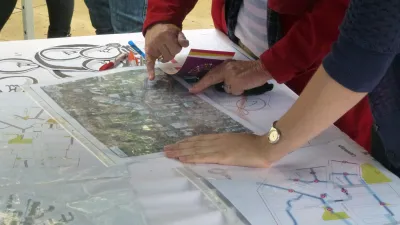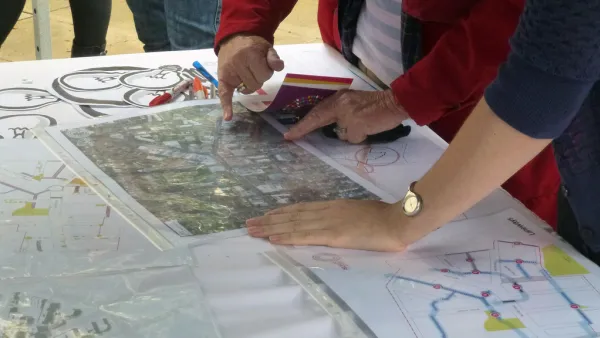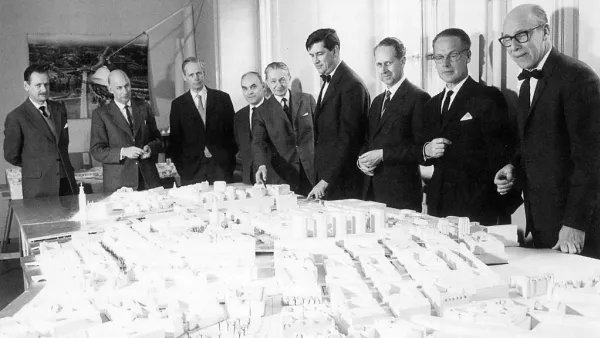Well known planning scholar and theorist Dr. Karen Christensen, from UC Berkeley, introduces her findings from a decade of interviews with exemplary planners in the San Francisco Bay Area.

Blog Post by Dr. Karen Christensen
My new article, "Both Process and Outcome Essential to Planning" (Open Access until May 30) brings the views of exemplary practicing planners to bear on a long-standing debate in planning theory. The debate concerns which should be most emphasized by planners: process or outcome. Process refers to the process the planner follows when planning, be it a rational, collaborative, or negotiating process. Outcome refers to the results when the planner has completed the planning (and implementing) process, for example a sustainable community. To answer this question, I used data collected in 119 interviews by graduate students in U.C. Berkeley's Planning & Institutions course, which I taught during the 1990s. As part of the course each student conducted the same structured interview with exemplary planners in the San Francisco Bay Area, meant to be role models.
The interviews revealed that consistent with communicative theorists’ claims more exemplary planners are facilitators than either technicians or activists. Moreover, the strategies most used—"build social capital" (e.g., networking) and "improve communication" (e.g., use an open process)—are particularly appropriate to consensus building.
At the same time, leading Bay Area practitioners understood planning as embedded in politics and shaped by institutions. For example, planners mentioned "intergovernmental resentments and power relations" and "direction from funding agencies." In explaining both their goals and their criteria of effectiveness planners showed themselves directed to outcomes.
Exemplary planners' strategies suit their roles and the political and organizational constraints they perceive, adopting strategies appropriate for a shared power world and asymmetric power relations. Thus, exemplary planners must take politics into account as they act as facilitators. However constrained they were, planners in the study believed they could be effective. One said "Stick to what you know to be important, bring your planning sense to that, and people will listen." On the other hand, the planners spoke about institutional constraints and uneven power relations. One said that the hardest lesson for her to learn was to listen to the politics. Exemplary planners accept political constraints as a factor to be taken into account, rather than a barrier to be removed.
Exemplary planners describe themselves as facilitators using communication and networking strategies in institutionally constrained practice settings of unequal power. Moreover, exemplary planners are goal directed. They use process and political skills to achieve valued outcomes.

These 10 years of interviews highlight that process-outcome is not necessarily a dichotomy, as different kinds of outcomes imply different kinds of processes. For example, economists might emphasize outcomes with highest benefit-cost ratios and equity planners might emphasize community organizing. In the Portland area, a collective movement tried to find ways to combine urbanization with safeguarding rural and natural areas. Values seem to shape the line between ends and means.
Open Access via SAGE Publications until May 30, 2015:
Christensen, Karen S. “Both Process and Outcome Essential to Planning.”Journal of Planning Education and Research (2015): 0739456X14566277.
Blog Post by Dr. Karen Christensen, Professor Emerita of City and Regional Planning: http://ced.berkeley.edu/ced/faculty-staff/karen-christensen.
You Can Follow @JPER7 on Twitter or on Facebook https://www.facebook.com/JPERPlanning.

Analysis: Cybertruck Fatality Rate Far Exceeds That of Ford Pinto
The Tesla Cybertruck was recalled seven times last year.

National Parks Layoffs Will Cause Communities to Lose Billions
Thousands of essential park workers were laid off this week, just before the busy spring break season.

Retro-silient?: America’s First “Eco-burb,” The Woodlands Turns 50
A master-planned community north of Houston offers lessons on green infrastructure and resilient design, but falls short of its founder’s lofty affordability and walkability goals.

Test News Post 1
This is a summary

Analysis: Cybertruck Fatality Rate Far Exceeds That of Ford Pinto
The Tesla Cybertruck was recalled seven times last year.

Test News Headline 46
Test for the image on the front page.
Urban Design for Planners 1: Software Tools
This six-course series explores essential urban design concepts using open source software and equips planners with the tools they need to participate fully in the urban design process.
Planning for Universal Design
Learn the tools for implementing Universal Design in planning regulations.
EMC Planning Group, Inc.
Planetizen
Planetizen
Mpact (formerly Rail~Volution)
Great Falls Development Authority, Inc.
HUDs Office of Policy Development and Research
NYU Wagner Graduate School of Public Service





























